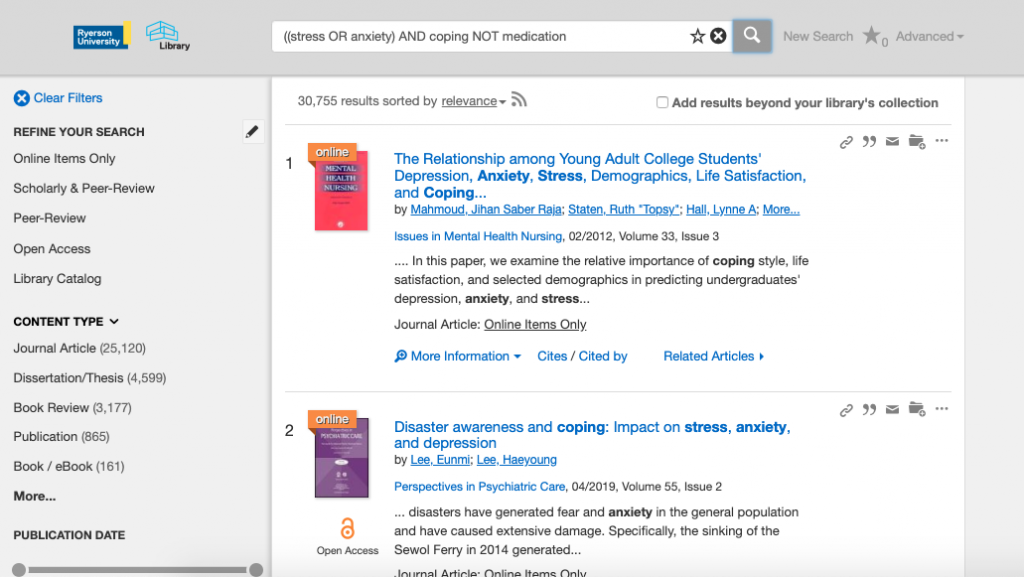Chapter 3: Information Literacy
Search Operators
Search operators are tools to help you optimize your searches. Senior-level students will tell you that they wished they had known about this in year one.

Figure 3.5: Senior student using search operators
Search operators including Boolean operators (AND, OR, and NOT) as well as truncation and quotation marks are so important! See Table 3.1 for a description and examples on how to use these operators. You might also want to use parentheses (what you might refer to as round brackets) to group similar terms that you are searching. Here is an example: (older OR elderly) AND (isolation OR loneliness) AND illness.
For more information about conducting a more efficient and effective search with various search operators, check out the following film clip about Boolean operators, quotation marks, and the asterisk/star symbol.
Table 3.1: Search operators
| Operator | Examples |
|---|---|
|
AND In capital letters, AND is used to combine terms so that your search reveals sources that have both terms in it. |
You might be interested in searching for articles about compassion in nursing. You don’t just want to find articles related to nursing only or compassion only. You can search nursing AND compassion to find sources that use both terms. |
|
OR In capital letters, OR is used to combine more than one keyword that you are interested in and both words have similar meanings. But, note that both words won’t necessarily be in the articles together. |
You might be interested in searching for articles related to young people and you are aware that this term has many related words. You can search youth OR adolescents OR teenagers to find sources that have at least one of these search terms, but don’t necessarily include all three search terms. |
|
NOT In capital letters, NOT is used to filter out certain keywords that you are not interested in. |
You might be interested in dance therapy, but not interested in certain types of dance. You can search “dance therapy” NOT “hip hop” NOT ballroom to find sources about all types of dance therapy except hip hop and ballroom. |
|
Truncation Use the asterisk/star at the end of a word if you are interested in a word with variations or alternate endings. |
You might be interested in all sources related to nursing, but are aware that there are many variations in how this word ends. You can search nurs* to find sources using terms including nurse, nursing, and nurses. |
|
Quotation marks Use quotation marks surrounding phrasing to group words together so that individual words are not found separately. |
You can use quotation marks to find specific phrases. For example, if you are interested in chronic diseases specifically and not just all diseases, then you should place quotation marks surrounding “chronic diseases” – this will ensure that other types of sources related to chronic only or diseases only are excluded. |
See Figure 3.6 for an example of a search done using Boolean operators “and” and “or.”
Figure 3.6: Search using Boolean operators
Activities: Check Your Understanding


